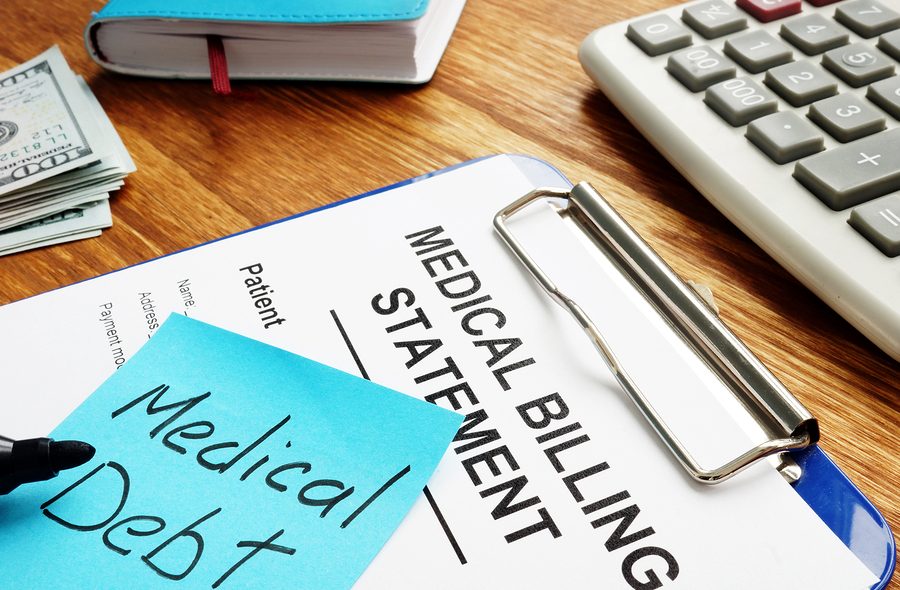Beginning in July 2022, the three major credit reporting agencies, Equifax, Experian, and TransUnion, announced they will remove approximately 70 percent of medical collection debt from their credit reports.
Specifically, paid medical collection debt will be the debt no longer included on consumer’s credit reports. The hope behind these efforts is to allow consumers more time to address their medical debt with their healthcare providers and insurance companies prior to the debt being reported.
Additionally, in the first half of 2023, all three credit reporting agencies will no longer include medical collection debt under at least $500 on credit reports.
According to the Consumer Financial Protection Bureau (CFPB), at least $88 billion in medical debt is currently sitting on at least 43 million credit reports as of June 2021. Most of these medical debts are under $500, although many individuals have multiple medical collections. COVID-19 has made the situation worse. Both uninsured and insured patients incurred substantial costs to cover COVID-19 related services, including testing and hospitalization. To the extent people deferred routine care during the pandemic, costs and medical debt are expected to increase post-pandemic.
Medical debt affects tens of millions of households. Roughly 20% of U.S. households report that they have medical debt. The CFPB found that medical collections tradelines appear on 43 million credit reports. As of the second quarter of 2021, 58% of bills that are in collections and on people’s credit records are medical bills.
Normally, when a bill goes unpaid, the creditor is within his or her rights to report that unpaid account to a credit agency. However, when it comes to medical debt, an unpaid bill can mean many things, including the fact that the amount has not been processed fully by the consumer’s insurance company. Given the high costs of healthcare, it may not always be possible for the consumer to pay off the debt in one single payment.
Unlike other forms of debt, representatives from the CFPB say that medical debt collection is less predictive of future payment problems than other forms of debt collections may be. This is normally because medical debt often comes from unfortunate and unforeseen circumstances.
The CFPB will act to ensure that the consumer credit reporting system is not used coercively against patients and their families to force them to pay questionable medical bills. The administration stated they would continue fighting for consumers, including increasing transparency in reporting to preventing surprise medical billing.
Please click here to read more.
Those who have experienced illness or injury and found themselves overwhelmed with medical debt should contact an experienced Miami bankruptcy attorney. In bankruptcy, medical bills are considered general unsecured debts just like credit cards. This means that medical bills do not receive priority treatment and can easily be discharged in bankruptcy. Bankruptcy laws were created to help people resolve overwhelming debt and gain a fresh financial start. Bankruptcy attorney Timothy Kingcade knows how to help clients take full advantage of the bankruptcy laws to protect their assets and get successful results. Since 1996 Kingcade Garcia McMaken, P.A. has been helping people from all walks of life build a better tomorrow. Our attorneys’ help thousands of people every year take advantage of their rights under bankruptcy protection to restart, rebuild and recover. The day you hire our firm, we will contact your creditors to stop the harassment. You can also find useful consumer information on the Kingcade Garcia McMaken, P.A. website at www.miamibankruptcy.com.

